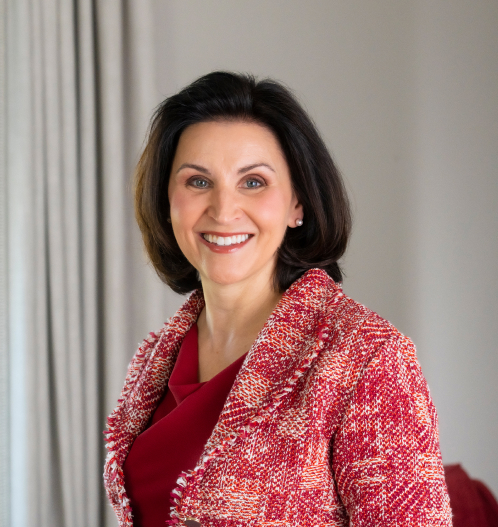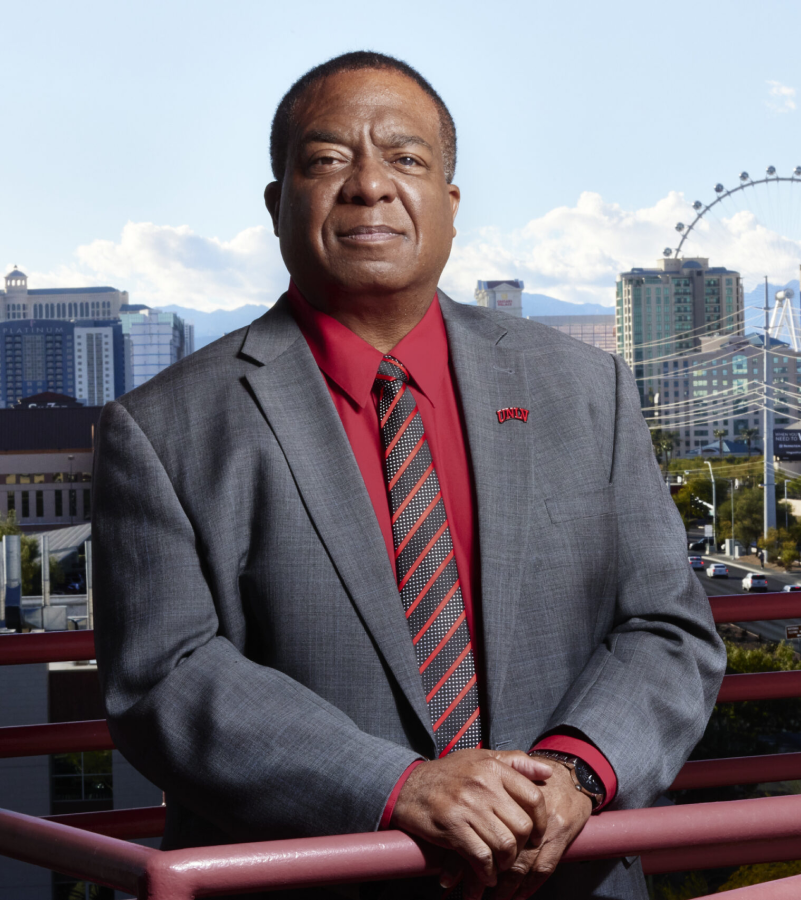"We had the largest spring class on record and a record-breaking class of freshmen.”
Could you say your name, position and the name of your institution?
I’m Krista Newkirk, and I’m the president of the University of Redlands.
Could you provide a brief introduction to the University of Redlands?
The University of Redlands is a private nonprofit institution located in Southern California, about 70 miles east of Los Angeles, between Los Angeles and Palm Springs. Founded in 1907, it serves around 3,500 students, with 2,000 undergraduates and about 1,500 graduate students. The university offers a well-rounded education, including professional schools in education, business and society. We also have a campus in Marin, north of San Francisco, where the San Francisco Theological Seminary and the Presidio Graduate School are based.
Why do you think students choose the University of Redlands?
I believe students are drawn to our focus on personalized education. They know they’ll be engaged in smaller class settings with faculty dedicated to their academic and career success. We aim to prepare students not only with theoretical knowledge but with practical experience for the workforce once they graduate.
We also have 21 NCAA Division 3 athletic teams, attracting around 25 percent of our incoming students, and a robust study abroad program. Our Salzburg campus in Austria has been in operation for 60 years, and we offer a May term, included in tuition, where students travel worldwide—in places like Palau, Guatemala and Panama. We’re proud to be one of only five Fulbright Hispanic-Serving Institutions in California and have been recognized as a top Fulbright producer globally since 2008.
Besides athletics and study abroad, what other programs help prepare students for future careers?
We focus on providing practical skills. For instance, our Fletcher Jones Innovation Center offers 3D printers, laser cutters and other tools. Our summer research program allows undergraduates to work with local medical schools and hospitals, engage in cancer and environmental research, and even study microplastics in Alaska’s glaciers. This access to research at the undergraduate level is rare for large public institutions and provides valuable preparation for those interested in graduate school.
Are there specific programs at the university that you’d like to highlight?
Our geographic information systems (GIS) program is noteworthy, especially conducted with Esri, the leading GIS company located right here in Redlands. We offer both Bachelor of Arts and Bachelor of Science degrees in GIS and minors for other fields. So, if they’re focused on environmental studies or business, you can bring in a minor in GIS to know how to locate your business best or see where your clients may be. We also provide a master’s in GIS and an executive master’s for C-suite professionals aiming to incorporate GIS in their companies.
What is the University of Redlands doing to keep college affordable?
We recently introduced the Redlands Promise, which offers tuition-free attendance for California students meeting GPA and income requirements. We also guarantee California students won’t pay more than the tuition at a University of California school if they qualify academically. For out-of-state students, we capped tuition at $24,000 in the fall of 2024. We’re committed to four-year graduation, provided students meet certain conditions. Additionally, we offer 4+1 programs for an MBA or a Master of Arts in Teaching, which students can complete with one extra year. We’re looking to expand that into additional programs going forward.
What would you say are the competitive strengths of the University of Redlands?
Our competitive strengths lie in our student outcomes. Alumni like Emmy-winning producer Angel Blue and Congressman Pete Aguilar have made significant impacts. Richard West, who founded the Smithsonian National Museum of the American Indian, is one of our alumni. Then we even have two of our alumni, brothers who wrote the show Cheers in the eighties. Our Johnston Center for Innovative Studies allows students to create their own degree programs, with evaluations based on personal contracts rather than grades. This program, in place since 1969, empowers students to design their educational paths.
Is there anything else you’d like to mention?
We recently added a Kinesiology degree to support student-athletes interested in this field and a Bachelor of Arts in Media and Communications. We’ve engaged in two mergers—the Presidio Graduate School, known for sustainability-focused MBAs, and Woodbury University, with strengths in architecture, interior and game design, filmmaking and animation. We’ve also launched an esports program, competing nationally. Our inclusive community office supports students from diverse backgrounds, and we encourage student-led clubs, which now number 70. They’re not just here for an education but to develop their character and become a well-rounded individual.
What’s your final message?
Our priority is personalized education and community service learning. Every student completes an internship within the community, gaining practical experience before graduating. Our students are bright and friendly and feel a strong sense of community, which we believe is essential for their success.
Thank you very much for your time, Krista.
Thank you, Victor. It was a pleasure speaking with you.



















